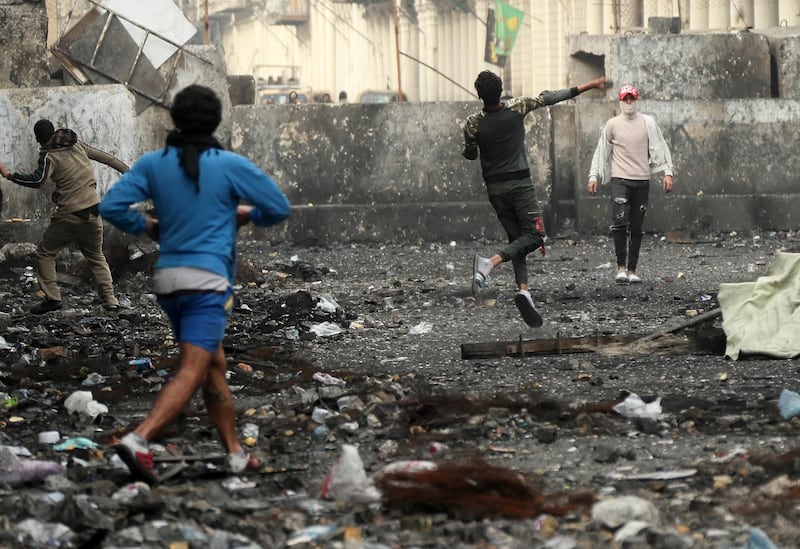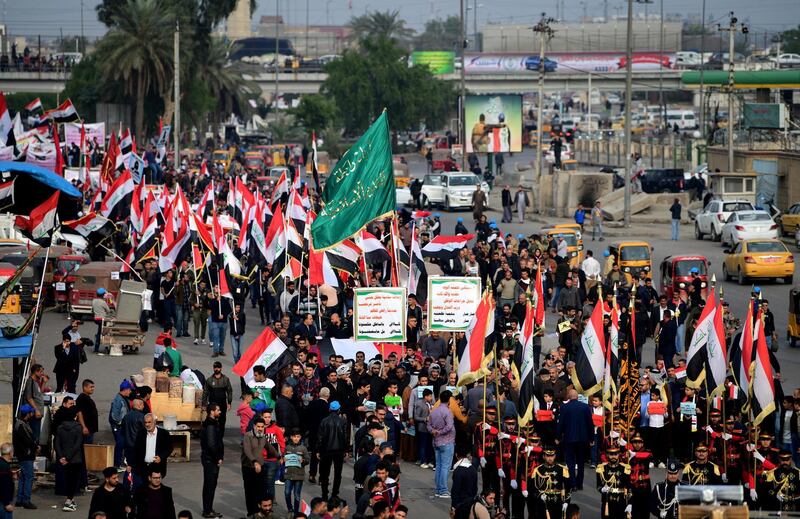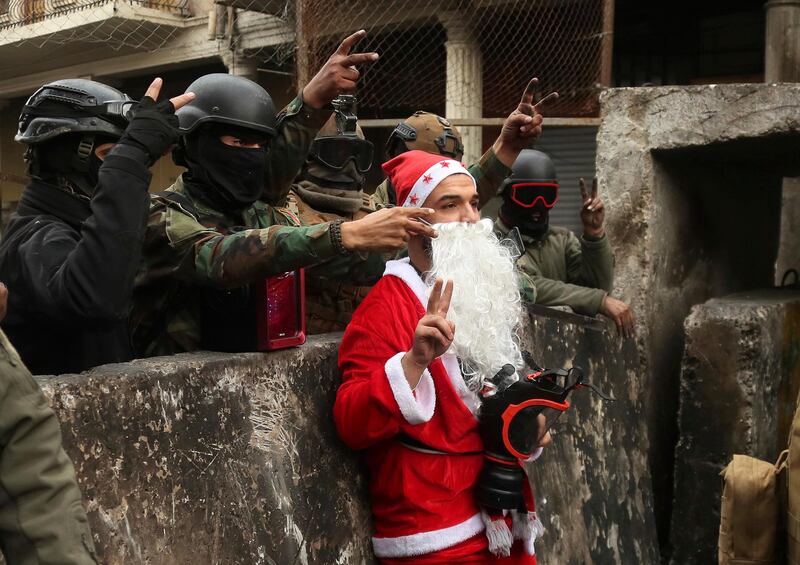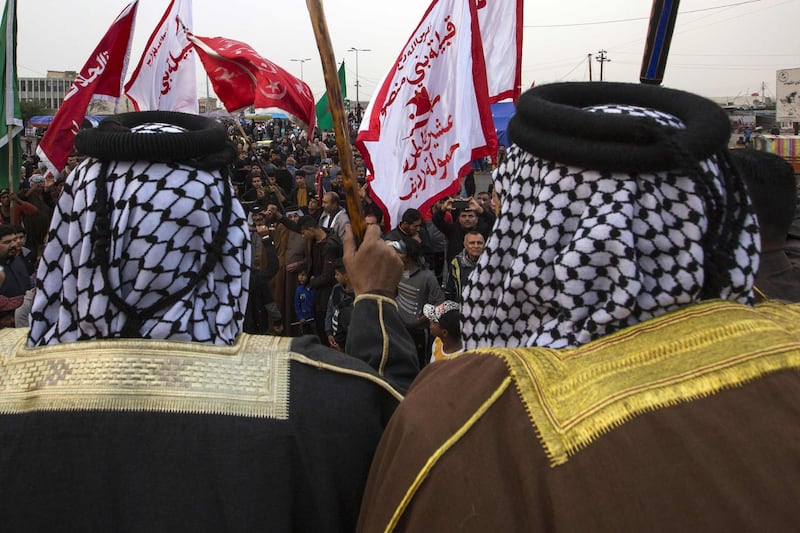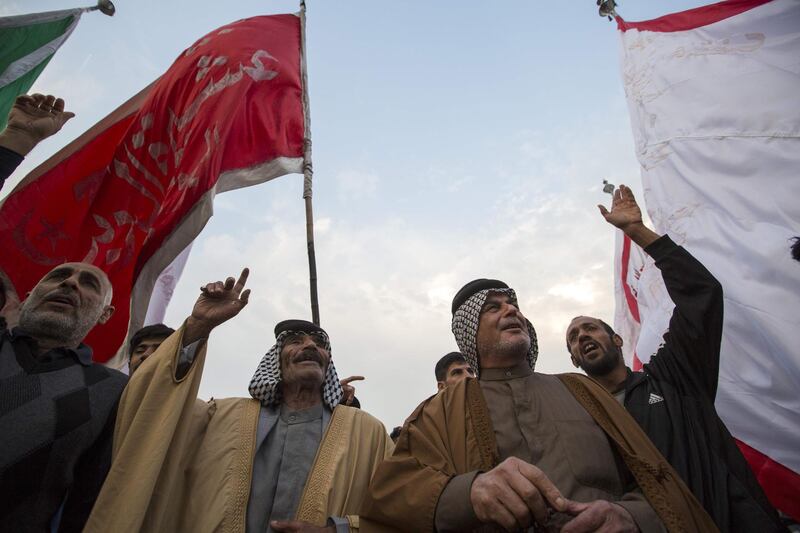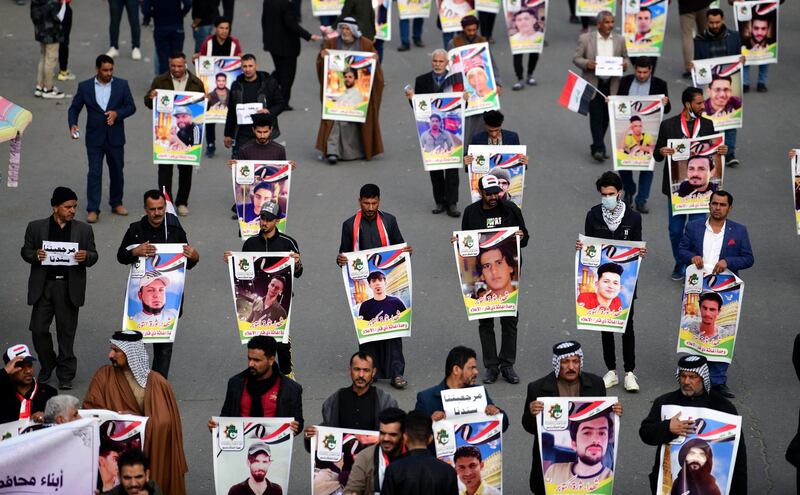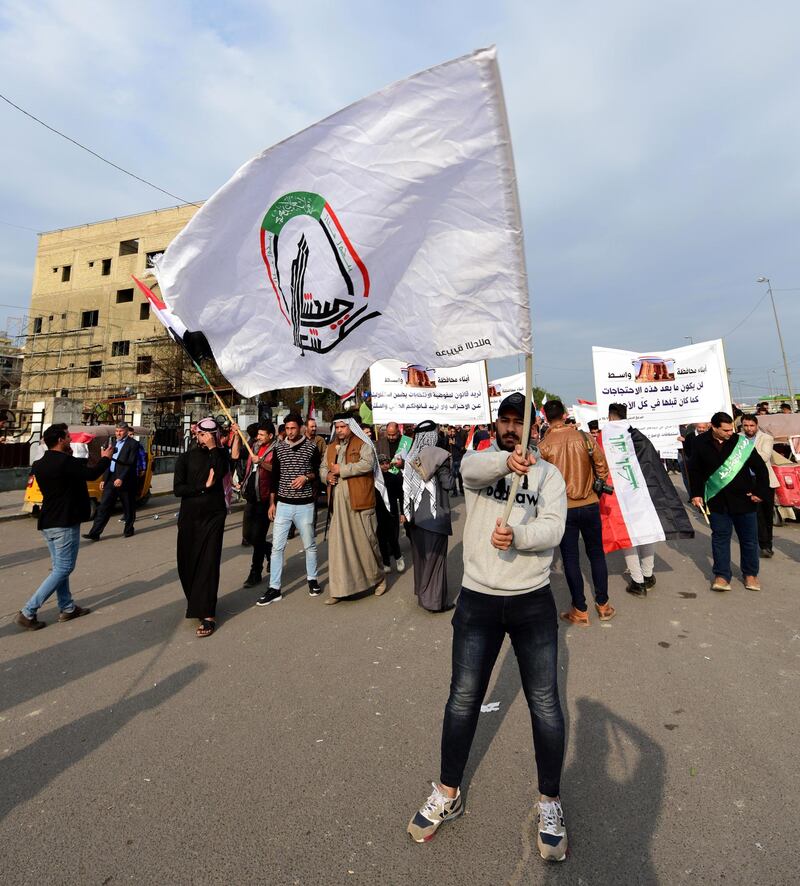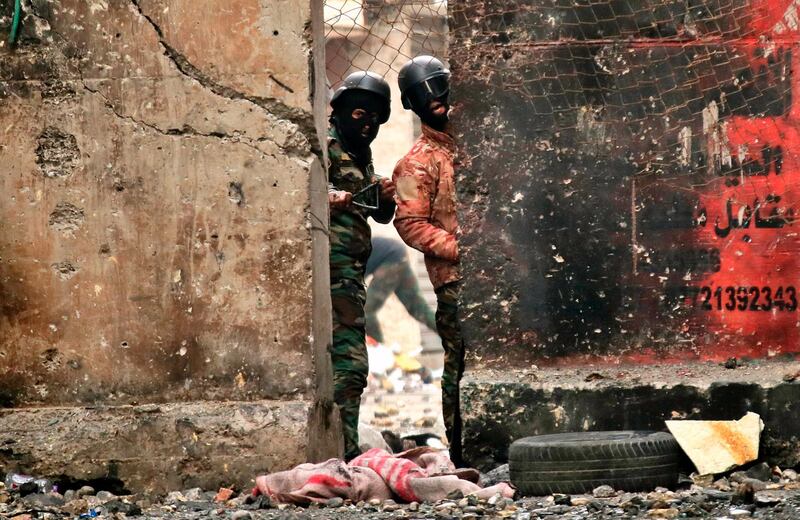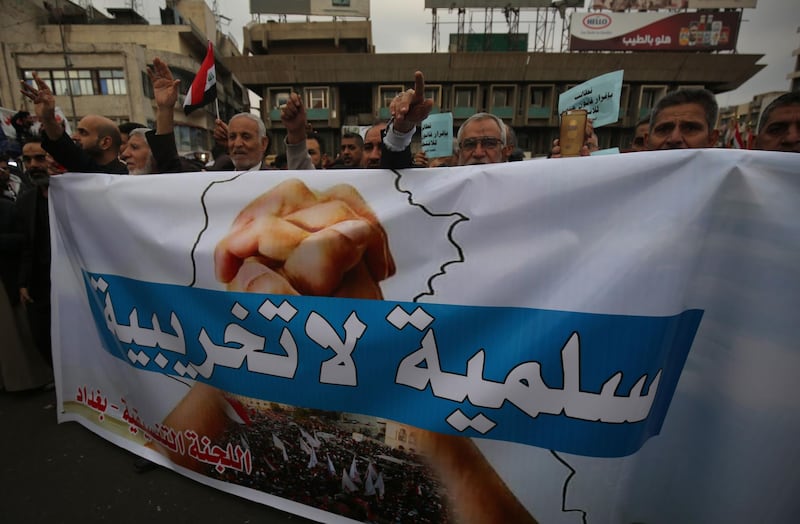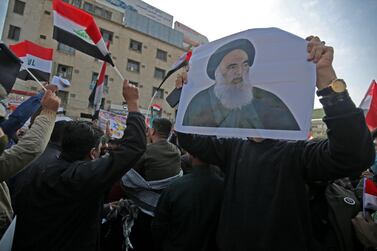Iraq's top Shiite cleric said that a new prime minister must be chosen without foreign interference in an apparent nod to Iranian influence as gunmen killed at least 15 people near a Baghdad protest site on Friday.
Security and medical officials say at least two of the dead were policeman, killed when unidentified assailants opened fire on crowds of protesters from inside vehicles.
Iraqi officials said more than 60 others were wounded in the shooting in Baghdad’s Khilani Square, near the capital's main protest camp in Tahrir Square, a week after Iraqi prime minister Adel Abdul Mahdi said he would resign following two months of anti-government protests.
Grand Ayatollah Ali Al Sistani's comments followed reports that a senior Iranian commander had been in Baghdad this week to rally support for a new government that would continue to serve Shi'ite Iran's interests.
Breaking: armed groups enter Tahrir Square and use live ammunition on protesters. The garage adjunct to Sinek bridge was set on fire. Protesters have been dwelling there for weeks. #IraqProtests pic.twitter.com/ud6ydC2j15
— Rasha Al Aqeedi (@RashaAlAqeedi) December 6, 2019
The influential cleric has repeatedly condemned the killing of unarmed protesters and has also urged demonstrators to remain peaceful and stop saboteurs turning their opposition violent.
Mr Al Sistani urged political leaders to abandon partisan politics in choosing a new head of government and said he would have no involvement in efforts to replace Mr Abdul Mahdi.
"We hope a new head of government and its members will be chosen within the constitutional deadline" of 15 days since the resignation was formalised in parliament on Sunday, Mr Al Sistani said in his Friday sermon read out by his representative in the city of Karbala.
"It must also take place without any foreign interference," he said.
Mr Abdul Mahdi pledged to step down last Friday after Mr Al Sistani urged parliament to reconsider their support for the government following two months of anti-establishment protests during which security forces have killed more than 400 demonstrators.
Iraq's two main allies, the United States and Iran, have acted as power brokers in the country since the 2003 US invasion that toppled Saddam Hussein, although Tehran's allies have mostly dominated state institutions since then.
Iranian officials including the powerful commander of its Revolutionary Guards' elite Quds Force, Qassem Suleimani, stepped in to prevent Mr Abdul Mahdi's resignation in October.
Mr Suleimani was reported to be in Baghdad again this week.
The protest movement poses a challenge to Iran's influence over Iraq with their call for an end to outside influence on Iraqi politics. Iran in particular wields tremendous sway among Iraqi political and military figures, especially the Hashed Al Shaabi paramilitary force.
But the protesters on the streets have publicly rejected what they say is Iran's overreach and have vented their anger against its diplomatic missions.
On Thursday, supporters of Iraqi political parties and the Hashed Al Shaabi briefly entered Tahrir Square.
Iraq's main political blocs have been debating candidates for the premiership but have yet to name anyone. Gen Suleimani has attended the talks along with Mohammad Kawtharany, a power-broker from Lebanon's Iran-backed Hezbollah movement, a senior political source told Agence France-Presse.
Iraq has close ties close to both Iran and the US and has tried to avoid being caught in up in the escalating tension between the two since the Washington pulled out of a landmark nuclear agreement with Tehran last year and reimposed crippling sanctions. The US has forces based in Iraq as part of a global coalition to fight ISIS.
Late on Thursday, two rockets hit the Al Balad air base north of Baghdad, Iraqi security forces said, the latest in a flurry of attacks on bases hosting US troops.
Thursday's attack with Katyusha rockets did not cause any casualties or material damage but "came close", a US official told AFP.
Washington has been concerned by a recent spate of attacks on Iraqi bases where some 5,200 US troops are deployed to help Iraqi forces ensure ISIS militants do not regroup.
The attacks, targeting either bases or the US embassy in Baghdad, have averaged more than one per week over the past six weeks.
"There is a spike in rocket attacks," a second US official said, adding that although they had caused no US casualties and little damage, they were increasingly worrying.
Five rockets hit Al Asad air base on December 3, just four days after US Vice President Mike Pence visited troops there.
Security sources said they believed Kataeb Hezbollah, a powerful Shiite faction close to Tehran and blacklisted by Washington, was responsible.
More than a dozen rockets hit the Qayyarah air base in northern Iraq last month, one of the largest attacks in recent months to hit an area where US troops are based.
There has been no claim of responsibility for the attacks and Washington has not blamed any particular faction.

